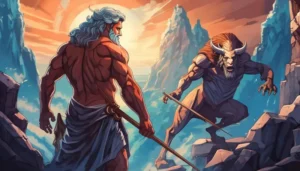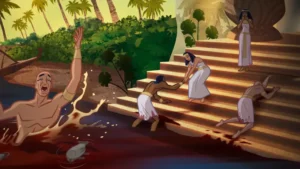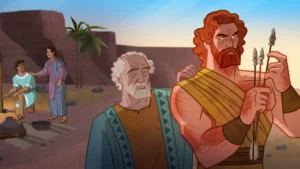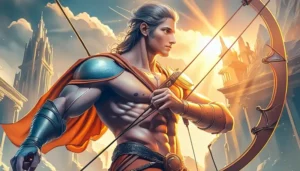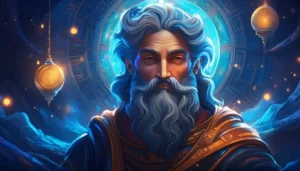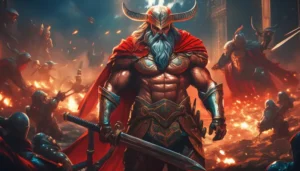Top 10 Most Powerful Greek Gods: The Olympians, the twelve major deities residing atop Mount Olympus, hold immense power and influence over various aspects of the world in Greek mythology. Their stories and relationships have captivated audiences for centuries, inspiring countless artistic and literary works. This list ranks the top 10 most powerful Greek gods based on their domains, abilities, and impact on both mortal and divine realms.
1. Zeus (the king of the gods and god of the sky and thunder)
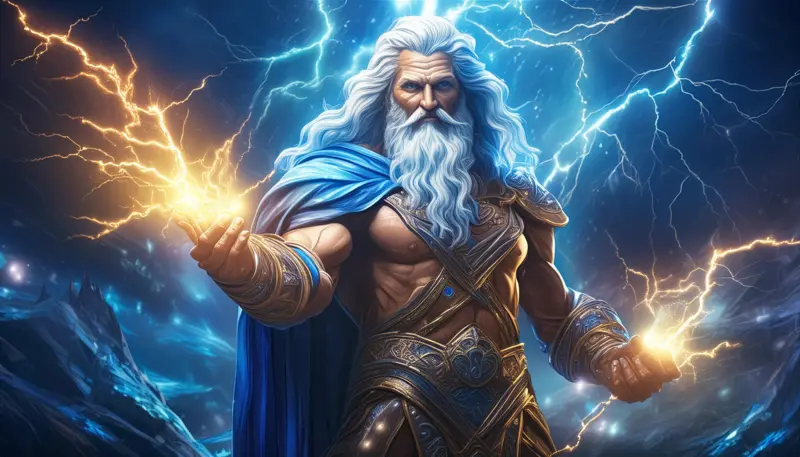
Zeus, the king of the gods and god of the sky and thunder, reigned supreme over Mount Olympus and the mortal world below. His dominion extended to all aspects of the natural world, and his power was unparalleled among the deities.
- King of the Gods: Zeus was the supreme ruler of the gods, presiding over their councils and enforcing his will upon them. He was revered as the ultimate authority figure, whose decisions shaped the fate of both gods and mortals.
- God of the Sky and Thunder: As the god of the sky and thunder, Zeus controlled the weather, wielding lightning bolts as his weapon of choice. His thunderous roar could shake the heavens and instill fear in the hearts of even the most courageous warriors.
- Protector of Justice and Order: Despite his fiery temper, Zeus was also seen as a guardian of justice and order. He punished those who transgressed divine law and upheld the principles of hospitality and fair treatment.
2. Poseidon (the god of the sea, earthquakes, and horses)
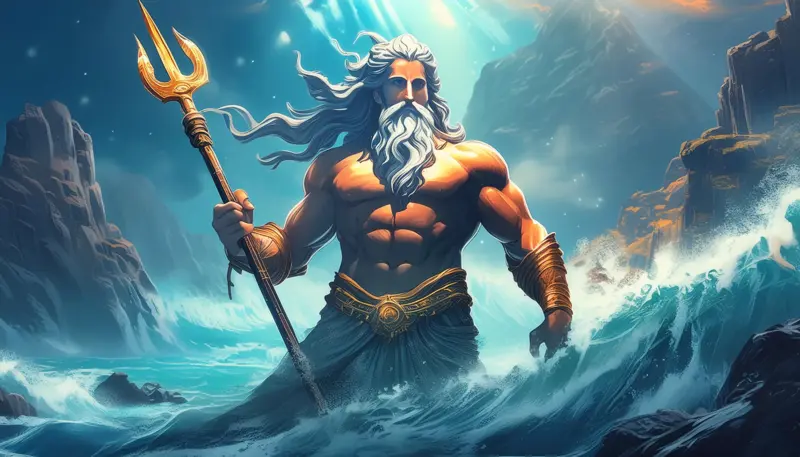
Poseidon one of the Top 10 Most Powerful Greek Gods, brother to Zeus and Hades, was revered as the god of the sea, earthquakes, and horses. He commanded immense power over the vast oceans and could unleash devastating forces upon those who angered him.
- Master of the Seas: As the god of the sea, Poseidon ruled over the vast oceans, controlling the waves, tides, and storms. Sailors and fishermen sought his favor for safe passage and bountiful catches.
- Earth-shaker: Poseidon was known as the “Earth-shaker” due to his ability to cause earthquakes by striking the ground with his trident. This made him a fearsome deity, capable of causing widespread destruction.
- Creator of Horses: Legend attributes the creation of horses to Poseidon, who was also considered the patron of these majestic creatures. He was often depicted riding a chariot drawn by horses across the waves.
3. Hades (Ruled over Underworld, god of Dead)

Hades, the eldest son of Cronus and Rhea, ruled over the Underworld, the realm of the dead. While often depicted as a fearsome figure, he was not necessarily evil but rather a keeper of balance in the cycle of life and death.
- Ruler of the Underworld: Hades reigned over the Underworld, a dark and mysterious realm where the souls of the deceased resided. He maintained order and ensured the proper passage of souls into the afterlife.
- God of Wealth and Riches: As the ruler of the Underworld, Hades controlled the earth’s riches, including precious metals and gems. He was often depicted holding a cornucopia, a symbol of abundance and wealth.
- Wielder of the Helm of Darkness: Hades possessed the Helm of Darkness, a powerful artifact that granted him invisibility and made him a formidable opponent in battle. This further added to his mystique and power.
4. Ares (the god of war, violence, and bloodshed)
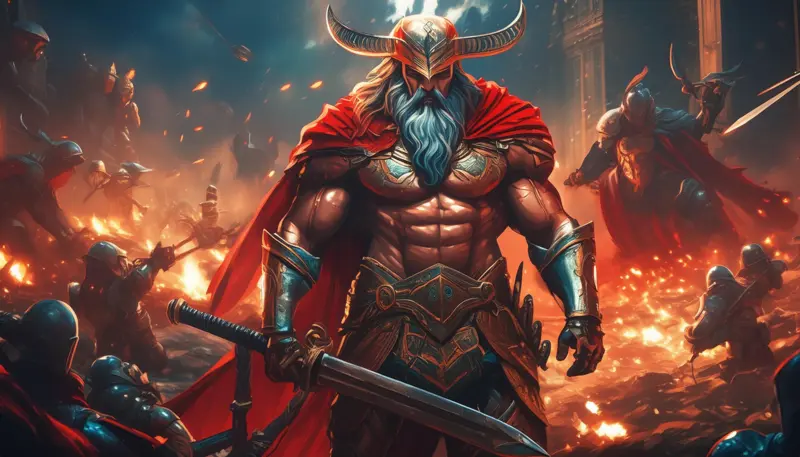
Ares was one of the Top 10 Most Powerful Greek Gods, the son of Zeus and Hera, was the god of war, violence, and bloodshed. He embodied the raw and destructive aspects of conflict, reveling in the chaos and carnage of battle.
- God of War: Ares was the embodiment of war itself, representing the brutal and unyielding aspects of conflict. He was often depicted as a fierce warrior, armed with a spear and shield, and his presence on the battlefield could turn the tide of any battle.
- Patron of Warriors: Despite his destructive nature, Ares was also the patron of warriors, inspiring courage and ferocity in those who sought his favor. He was invoked for strength and victory in battle, and his name was often invoked as a battle cry.
- Bloodlust and Rage: Ares was known for his insatiable bloodlust and uncontrollable rage. He reveled in the chaos and carnage of war, taking pleasure in the suffering and death of both enemies and allies alike.
5. Morpheus (the Greek god of dreams and sleep)
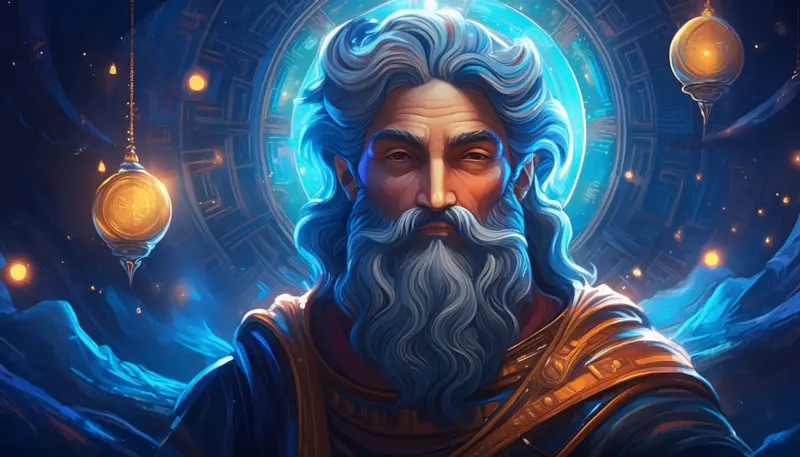
Morpheus, the son of Hypnos (Sleep), was the Greek god of dreams and sleep. He had the ability to take any human form and appear in the dreams of mortals, making him a powerful figure in the realm of sleep and the subconscious.
- Shaper of Dreams: Morpheus was known as the one who shaped and formed dreams, creating vivid and realistic experiences for those who slumbered. He could manipulate the dreamscape, crafting landscapes, characters, and scenarios that reflected the desires, fears, and anxieties of the dreamer.
- Messenger of the Gods: Morpheus was also believed to be a messenger of the gods, communicating divine messages through dreams. He could appear in the dreams of mortals and deliver prophecies, warnings, or guidance from the divine realm.
- Influence on the Subconscious: Morpheus’s power extended beyond mere entertainment or communication. He was believed to have a profound influence on the subconscious mind, shaping thoughts, emotions, and behaviors even after the dreamer awoke.
6. Apollo, the son of Zeus and Leto, was a multifaceted god associated with music, truth, knowledge, light, healing, and archery
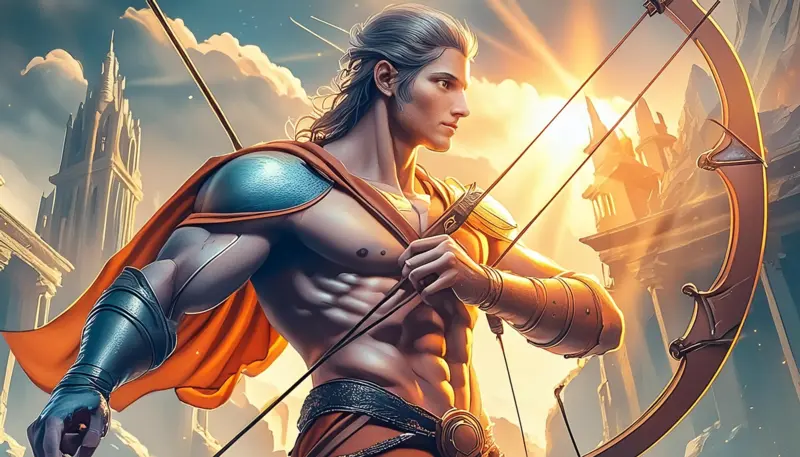
Apollo was one of the Top 10 Most Powerful Greek Gods, the son of Zeus and Leto, was a multifaceted god associated with music, truth, knowledge, light, healing, and archery. His influence extended to various aspects of human life, and he was revered as a source of inspiration and enlightenment.
- God of Music and Poetry: Apollo was the god of music and poetry, often depicted playing the lyre, a stringed instrument. He was believed to inspire artists and musicians, and his music was said to have the power to soothe the soul and heal the body.
- God of Light and Truth: Apollo was also associated with light and truth, representing the power of knowledge and enlightenment. He was often depicted with a radiant aura, symbolizing his role as a bringer of clarity and understanding.
- God of Healing and Medicine: As the god of healing, Apollo was revered for his ability to cure diseases and restore health. He was often invoked for protection against illness and injury, and his son Asclepius was considered the patron of medicine.
7. Dionysus (the god of wine, festivity, theatre, religion, and madness)
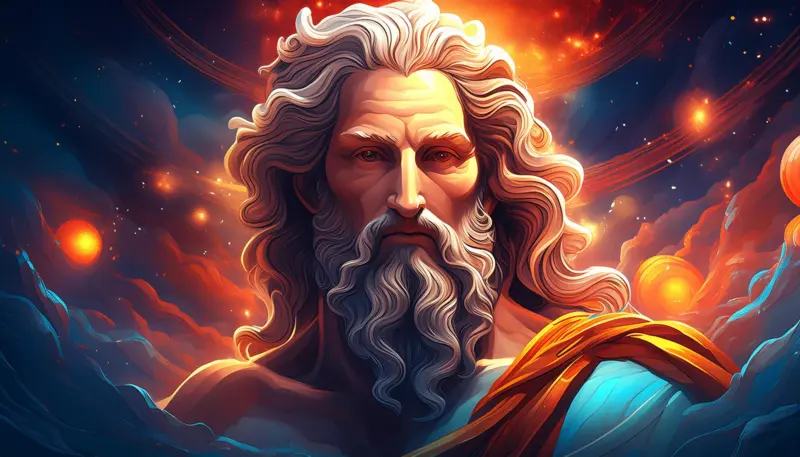
Dionysus, the son of Zeus and Semele, was the god of wine, festivity, theatre, religion, and madness. He was a complex and enigmatic figure, embodying both the ecstatic joy of celebration and the wild frenzy of intoxication.
- God of Wine and Festivity: Dionysus was the god of wine, representing the intoxicating and transformative power of this beverage. He was associated with revelry, dance, and music, and his festivals were known for their wild abandon and ecstatic celebrations.
- Patron of Theatre and Drama: As the patron of theatre and drama, Dionysus was believed to inspire actors and playwrights, and his festivals were often accompanied by theatrical performances and competitions. He represented the power of art to evoke emotions and challenge societal norms.
- God of Madness and Ecstasy: Dionysus was also associated with madness and ecstasy, representing the irrational and unpredictable aspects of human nature. His followers, known as Maenads, would engage in wild dances and rituals, often driven into a state of frenzy by the god’s intoxicating presence.
8. Hephaestus (the god of fire, metalworking, sculpture, and forging)
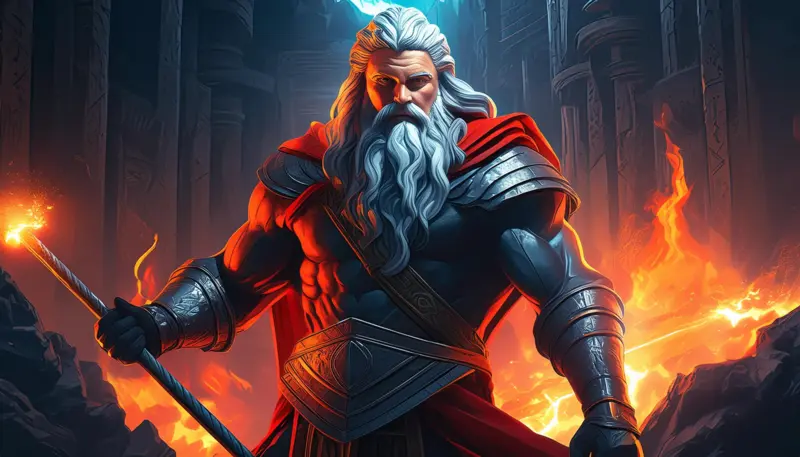
Hephaestus was one of the Top 10 Most Powerful Greek Gods, the son of Zeus and Hera, was the god of fire, metalworking, sculpture, and forging. He was a skilled craftsman and artisan, creating magnificent works of art and powerful weapons for the gods.
- God of Fire and Metalworking: Hephaestus was the god of fire, representing the creative and destructive power of this element. He was also the patron of metalworking, forging, and sculpture, and his workshop was said to be located beneath Mount Etna, a volcano in Sicily.
- Master Craftsman and Artisan: Hephaestus was renowned for his skill as a craftsman and artisan, creating intricate and beautiful objects from metal. He was responsible for forging the lightning bolts of Zeus, the trident of Poseidon, and the armor of Achilles.
- Lame and Deformed: Despite his talent and power, Hephaestus was often depicted as lame and deformed, a result of being thrown from Mount Olympus by Zeus. However, his physical imperfections did not diminish his skill or his importance in the divine realm.
9. Prometheus (Titan god of intelligence and cunning)
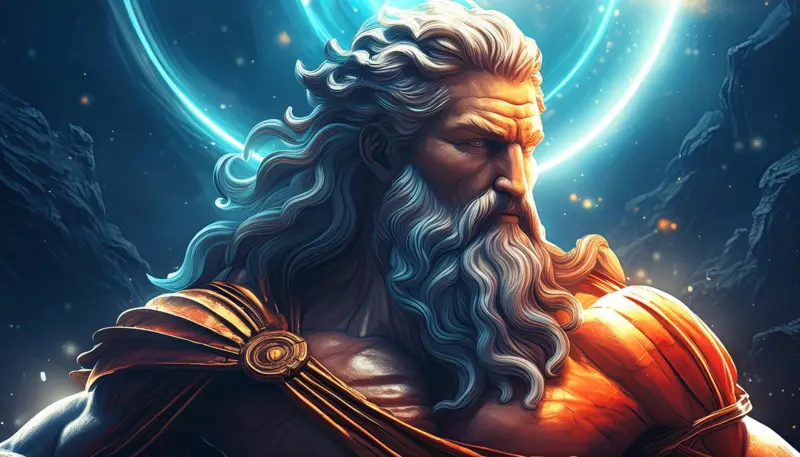
Prometheus was one of the Top 10 Most Powerful Greek Gods, a Titan god known for his intelligence and cunning, was a champion of humanity and a benefactor of mankind. His actions, however, brought him into direct conflict with Zeus and resulted in his eternal punishment.
- Benefactor of Mankind: Prometheus was a champion of humanity, seeking to improve their lives and provide them with the tools for progress. He defied the gods by stealing fire from Mount Olympus and gifting it to mankind, enabling them to cook food, create tools, and develop civilization.
- Trickster and Defier of Authority: Prometheus was known for his cunning and trickery, often outsmarting the gods to achieve his goals. He was not afraid to challenge authority, even when it meant facing the wrath of Zeus.
- Punished by Zeus: For his transgression of stealing fire, Zeus punished Prometheus by chaining him to a rock where an eagle would daily devour his liver, which would regenerate overnight. This eternal torment was a symbol of the consequences of defying the will of the gods and the price of progress for humanity.
10. Hermes (the god of trade, thieves, travelers, sports, athletes, and border crossings, as well as the guide of souls to the Underworld)
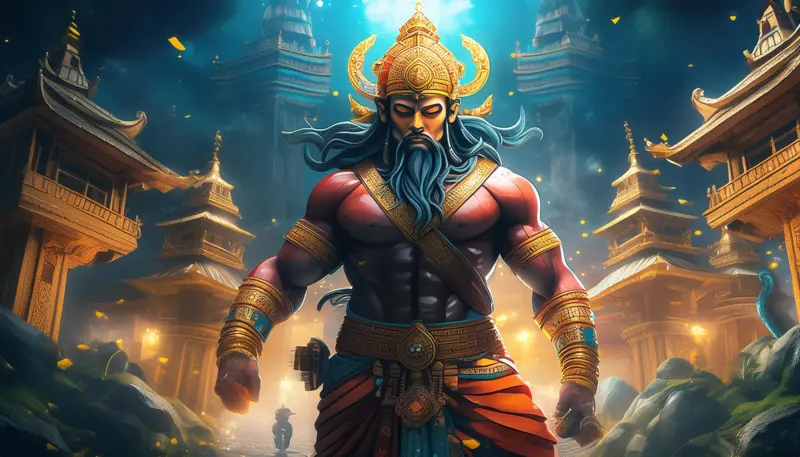
Hermes, one of the Top 10 Most Powerful Greek Gods, the son of Zeus and Maia, was the god of trade, thieves, travelers, sports, athletes, and border crossings, as well as the guide of souls to the Underworld. He was known for his cunning, wit, and speed, and he served as a messenger and intermediary between the gods and mortals.
- Messenger of the Gods: Hermes was the official messenger of the gods, known for his swiftness and agility. He wore winged sandals that allowed him to travel quickly between Olympus and the mortal world, delivering messages and carrying out errands for the other deities.
- God of Trade and Thieves: As the god of trade, Hermes was associated with commerce, merchants, and travelers. He was also considered the patron of thieves, known for his cunning and trickery.
- Guide of Souls to the Underworld: Hermes played a crucial role in escorting the souls of the deceased to the Underworld, guiding them across the River Styx and ensuring their safe passage into the afterlife. He was often depicted carrying a caduceus, a winged staff entwined with two serpents, which symbolized his role as a psychopomp.
The power and influence of these Olympian gods have permeated through centuries of human history, shaping our understanding of the world and inspiring countless works of art, literature, and mythology. Their stories continue to captivate audiences today, reminding us of the enduring power of myth and the timeless appeal of these ancient deities.
Read More: Greek Mythology
FAQs
Zeus is generally considered the most powerful Olympian due to his control over lightning and his role as ruler. However, some myths suggest his father Cronus and grandfather Uranus were stronger. Ares excels in combat, while Hera’s influence and cunning make her a formidable force. It ultimately depends on how “strength” is defined.
Cronus, Uranus, and Typhon are sometimes considered stronger than Zeus in Greek mythology. In other mythologies, Odin, Thor, Shiva, Vishnu, or Marvel’s Hercules could be stronger. It depends on the context and interpretation.
In most interpretations of Greek and Norse mythology, Zeus is considered stronger than Thor. Zeus is the king of the Olympian gods, wielding immense power over the sky, lightning, and the cosmos itself. While Thor is incredibly strong and wields the mighty hammer Mjolnir, he is ultimately subject to the will of higher powers like Odin in his pantheon.
However, depictions of the two in popular culture, like Marvel Comics, can vary. Some versions portray Thor as physically stronger and a more skilled warrior than Zeus, while others maintain Zeus’ superior power and authority. Ultimately, determining who is stronger depends on the specific context and interpretation of these mythological figures.
Determining who is stronger between Shiva and Zeus is complex, as they belong to different mythologies with distinct power structures and interpretations.
Shiva, a major Hindu deity, is often considered the destroyer and transformer of the universe, embodying immense power over creation, destruction, and rebirth. He is associated with vast cosmic energy and transcendental abilities.
Zeus, the king of the Olympian gods in Greek mythology, wields control over the sky, thunder, and lightning, and is considered the ruler of the cosmos in his pantheon. He possesses immense strength and authority.
Comparing their powers directly is difficult as their abilities are often metaphorical and context-dependent within their respective mythologies. Different interpretations and adaptations may portray either deity as more powerful.
Ultimately, deciding who is stronger is subjective and depends on the specific context, interpretation, and criteria used to measure strength.

